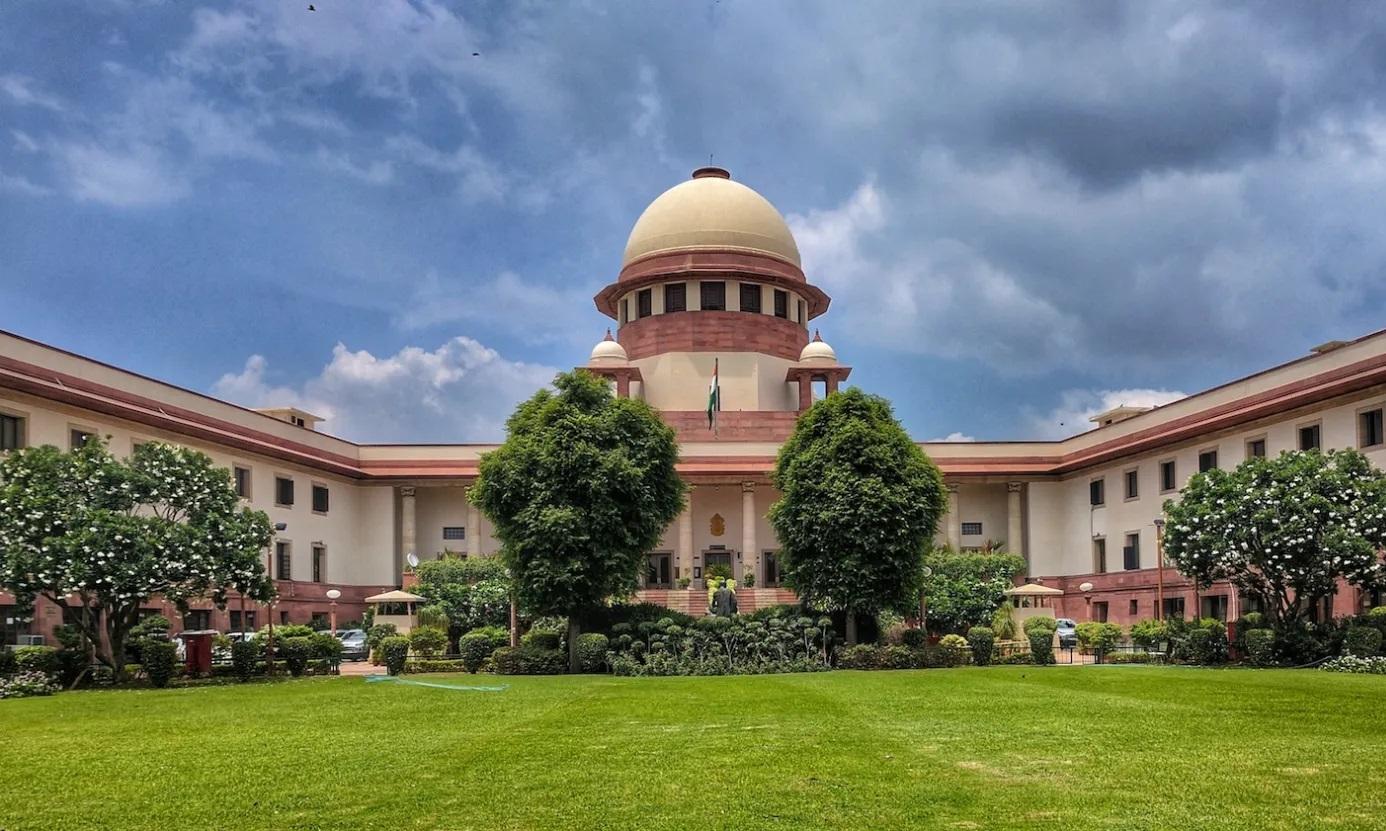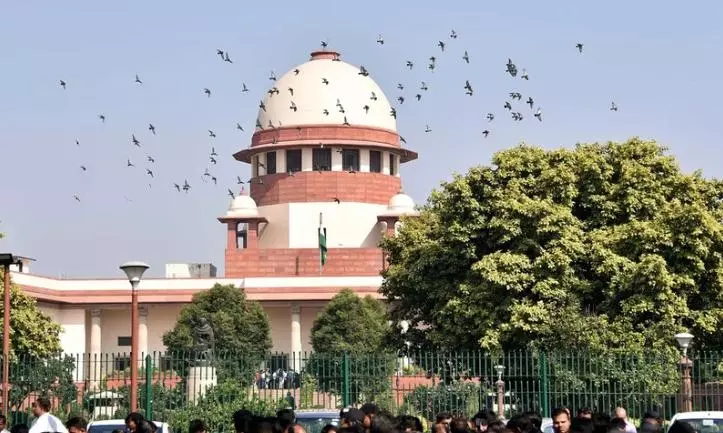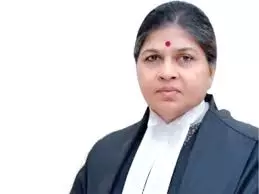
Justice system straining under pressure
text_fieldsTwo new judges have been sworn in to the country's apex court. With this, the strength of judges in the Supreme Court has reached the maximum of 34. Bombay High Court judge Justice Alok Aradhe and Patna High Court Chief Justice Vipul Manubhai Pancholi have been elevated to the Supreme Court. Although disagreements and controversies often arise over the appointment of judges, the discussions surrounding Justice Pancholi's appointment go beyond all the previous controversies. The Supreme Court collegium, which met on August 25, decided to elevate both of them as apex court judges. The subsequent proceedings were swift. The President's approval was given for the appointment on August 27. When four of the five-member collegium agreed to elevate Justice Pancholi, Justice B.V. Nagarathna, the only remaining woman judge in the Supreme Court, and known for always being steadfast in upholding a just stand, dissented, stating her strong disagreement with reasons. According to the seniority list of judges, Pancholi is 57th. Justice Alok is in the 5th place. It was pointed out that Pancholi's appointment comes in a way that upsets seniority, regional representation, and gender justice.
One of the issues raised by Nagarathna is that despite having three women judges with seniority above Pancholi, none of them was considered. The judges who were discarded are Gujarat High Court Chief Justice Sunita Agarwal, Bombay High Court Justice Revati Mohite and Punjab and Haryana High Court Justice Lisa Gill. In August 2021, when Justice N.V. Ramana was the Chief Justice, Bela M. Trivedi, Hima Kohli and B.V. Nagarathna were appointed as judges together, but later when four Chief Justices appointed 28 judges, among them not a single one was woman. In the context of the retirement of Bela Trivedi and Hima Kohli, it is basic justice to appoint women judges in their place. Nagarathna in her dissent note has also highlighted some serious issues which cannot be dismissed by arguing that women’s representation in Indian courts has always been weak. The collegium did not consider Nagarathna 's suggestion to examine the 'confidential minutes' recorded when Pancholi was transferred to the Patna High Court in 2023. She had demanded that the dissent note be published on the Supreme Court website, but this has not happened. The Campaign for Judicial Accountability and Reforms and former Supreme Court judge Abhay S. Oka have also demanded that the dissent note be made public.
With the inclusion of Justice Pancholi, who was an assistant pleader and additional public prosecutor in the government when Narendra Modi was the Chief Minister of Gujarat, the Gujarati representation in the Supreme Court will become three. It should be remembered that there is not a single judge from Kashmir, Odisha or the North-Eastern states in the apex court. Whether or not Nagarathna's dissent note is made public, it is already clear why Pancholi's entry into the Supreme Court was possible so quickly. Although the Supreme Court Bar Association remains silent on the procedures that undermine the credibility of the judiciary and the legal profession, a few women lawyers, including Indira Jaising, Mahalakshmi Pavani, Shobha Gupta, Aparna Bhatt and Kavita Wadia, have come forward to express their strong stance.
It is in the midst of the overzealousness of the government in transferring a judge by bypassing seniority that the central government's consistent interference in transferring an upright judge is also coming to the fore. Former Supreme Court judge Madan B. Lokur has written openly about the pressure exerted by the central government on the Supreme Court collegium to transfer Justice Muralidhar, a Delhi High Court judge who criticized the Delhi Police's stance in not filing cases against BJP leaders Anurag Thakur, Kapil Mishra, and Parvesh Verma, who made hate speeches that led to the 2020 Delhi communal riots. The transfer did not happen then because Lokur objected. After Lokur retired, although the Centre continued to pressurize, it did not happen only because Justice A.K. Sikri objected. It is revealed that after Sikri retired, Justice Muralidhar was transferred to the Punjab and Haryana High Court. At a time when such pressures are being exerted on the collegium, which was formed with the aim of ensuring the independence of the judiciary, who can guarantee that justice and law enforcement will be free and impartial?
















